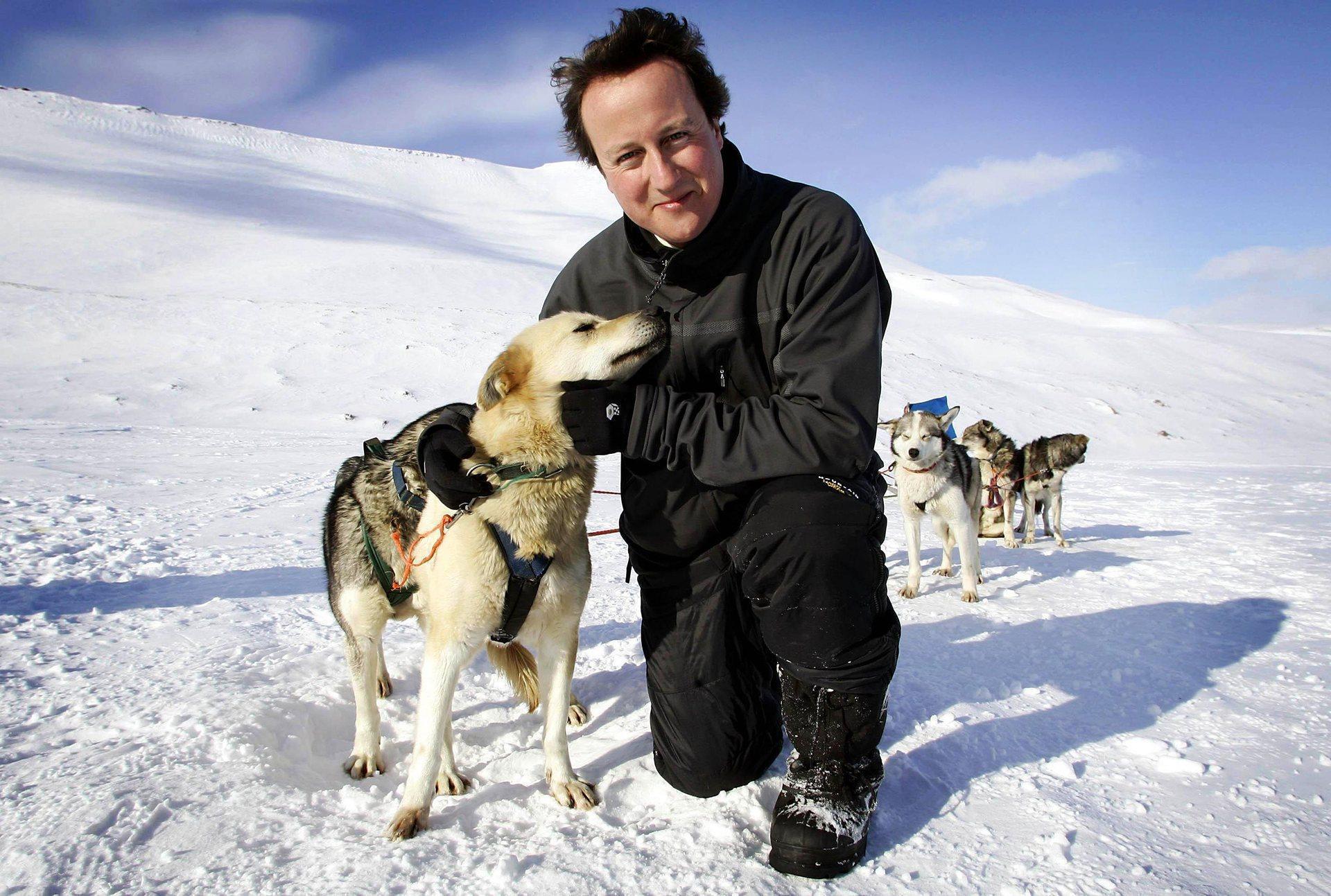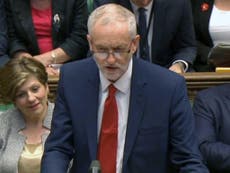David Cameron underestimated his party's right-wing backbenchers - and paid a hefty price
When he no longer had to keep the Lib Dems on board, David Cameron became a much less cuddly Conservative. The man who once hugged a husky in the Arctic Circle now wanted to get rid of the “green crap” to reduce energy bills


“Whatever the judgements made, I’ll be sure in my heart that a sense of duty is what has guided me,” David Cameron wrote in a speech that he never made. It was drafted on the eve of last year’s general election which, to his surprise, he won – because the Conservatives ruthlessly gobbled up seats held by their Liberal Democrat coalition “partners”.
As he departed Downing Street on Wednesday, Cameron could reflect ruefully on what might have been. If the Tories had fallen short of an overall majority, the Coalition would probably have continued. The Lib Dems would have almost certainly blocked the in/out EU referendum promised in the Tory manifesto, sparing Cameron his ignominious defeat last month and the country from the turmoil since.
The uncertainty and instability has tarnished Cameron’s economic legacy. Although the deficit was cut much more slowly than he promised – and no faster than Labour would have done – he could have claimed to have sorted out Labour’s mess. But not now; his own target for a budget surplus by 2020 has been junked since the Brexit vote. He can point to the 2.4 million jobs created while he was PM, but the crucial statistic is that average weekly wages fell slightly, surely a big factor in the referendum decision.
I think Cameron’s greatest achievement was the way he managed Britain’s first peace-time coalition since the 1930s. He was well-suited to the task, as a pragmatist rather than an ideologue. Not that he was a blank page, as some Tory right-wingers always claimed. On Cameron’s desk as Leader of the Opposition was a photo of Harold Macmillan, a One Nation Tory prime minister, rather than the statutory one of Margaret Thatcher.
Being a liberal Conservative made a coalition with the Lib Dems a relatively easy fit. The Coalition provided economic stability when it was needed. Crucially, it handed Cameron a Commons majority of more than 70, so he was not at the mercy of about 30 right-wing Eurosceptic MPs who never accepted his modernising agenda.
After becoming Tory leader in 2005, Cameron tried to take the party’s ageing members on a journey, to save it from extinction. They gulped when he endorsed same-sex marriage, but most went along with it. The 2008 financial crisis interrupted his crusade. Talk of letting “sunshine win the day” and matching Labour’s spending plans gave way to austerity. Cameron would have been a better PM in the easier economic times enjoyed by Tony Blair, on whom he modelled himself and was still calling “the master” when I interviewed him last year.
Like Blair, Cameron was a polished performer and communicator who could speak for the nation, as he did in his gracious apology for Bloody Sunday. After his valedictory Prime Minister’s Questions this week, MPs in all parties and even hardened journalists left the Commons chamber uttering the words “class act”, just as they did when Blair departed the stage in 2007.
Cameron stole plenty of New Labour clothes, building on the academy schools programme, protecting the health budget and hijacking the national minimum wage. He rightly stuck to his guns on international aid spending, despite strong pressure from his MPs to cut it. Like Blair, he came to office with little foreign policy baggage and became more interventionist. Cameron failed to learn the lessons from Blair’s invasion of Iraq; after toppling a dictator in Libya, there was no plan for the aftermath. His nadir, until the EU referendum result, was his Commons defeat on air strikes in Syria.
In the Coalition period, Cameron used to moan about “those pesky Lib Dems” but he missed them when they were gone. His small Commons majority of 12 put him at the mercy of the right-wing backbench critics he could no longer afford to antagonise. His Government was forced into embarrassing U-turns on cuts to tax credits and disability benefits and plans to force all schools to become academies.
When he no longer had to keep the Lib Dems on board, Cameron looked less of a liberal Conservative. The man who once hugged a husky in the Arctic Circle now wanted to get rid of the “green crap” to reduce energy bills. There were plenty of such contradictions. In his hour of victory last year, Cameron went back to his roots as the One Nation, compassionate Conservative who won the Tory leadership. He promised an “all-out assault on poverty” but got rid of the target to abolish child poverty by 2020.
Cameron genuinely wanted to push his “life chances” agenda to boost social mobility before standing down in 2019. He urged his successor Theresa May to take it forward when he chaired his last Cabinet meeting on Tuesday. He will be frustrated to leave so much unfinished business, and to know that his legacy will not be One Nation but a very divided one after the EU referendum: England versus Scotland; young versus old; the winners from globalisation versus those left behind. He knows that his political epitaph might be not only as the PM who accidentally led Britain out of the EU – bad enough – but also as the one who paved the way for the break-up of the UK and Scotland’s departure.
How did it all turn sour only 13 months after what he called “the sweetest victory of all”? Cameron paid the price for not “banging on about Europe” when his MPs were so obsessed about it. He naively hoped the issue would go away. Then he pandered to his Eurosceptics instead of confronting them, taking the reckless gamble of an unnecessary referendum even though he had never sold the benefits of EU membership to the public. He put all his eggs in Angela Merkel’s basket as he tried to win better membership terms, leaving it too late to turn on his charm for the other 26 EU leaders. He got a wafer-thin new deal, without the curbs on free movement he had promised.
Cameron put too much faith in his powers of persuading the public, which had got him out of scrapes in the referendum on Scottish independence and at last year’s election. This time, it didn’t work, and he had to use his Plan B speech drafted for defeat.
At one level, Cameron leaves a healthier party. The number of Tory MPs is up from 198 when he became leader to 330. But it is more by luck than judgement that he is succeeded by May, a moderniser, rather than a right-wing traditionalist. His referendum provided a platform for the resurgence of the Europhobic right, whose MPs will now limit May’s room for manoeuvre.
Cameron would have liked to have bequeathed a kinder, gentler Britain than the one he took over in 2010. Despite headline successes such as same-sex marriage, he did not change the country as much as he would have wished – or as much as Blair did. And he departs when his referendum has exposed a country many had hoped we had left behind, with anti-immigration sentiment and hate crimes on the rise. In every sense, it is not the legacy he wanted.


Join our commenting forum
Join thought-provoking conversations, follow other Independent readers and see their replies